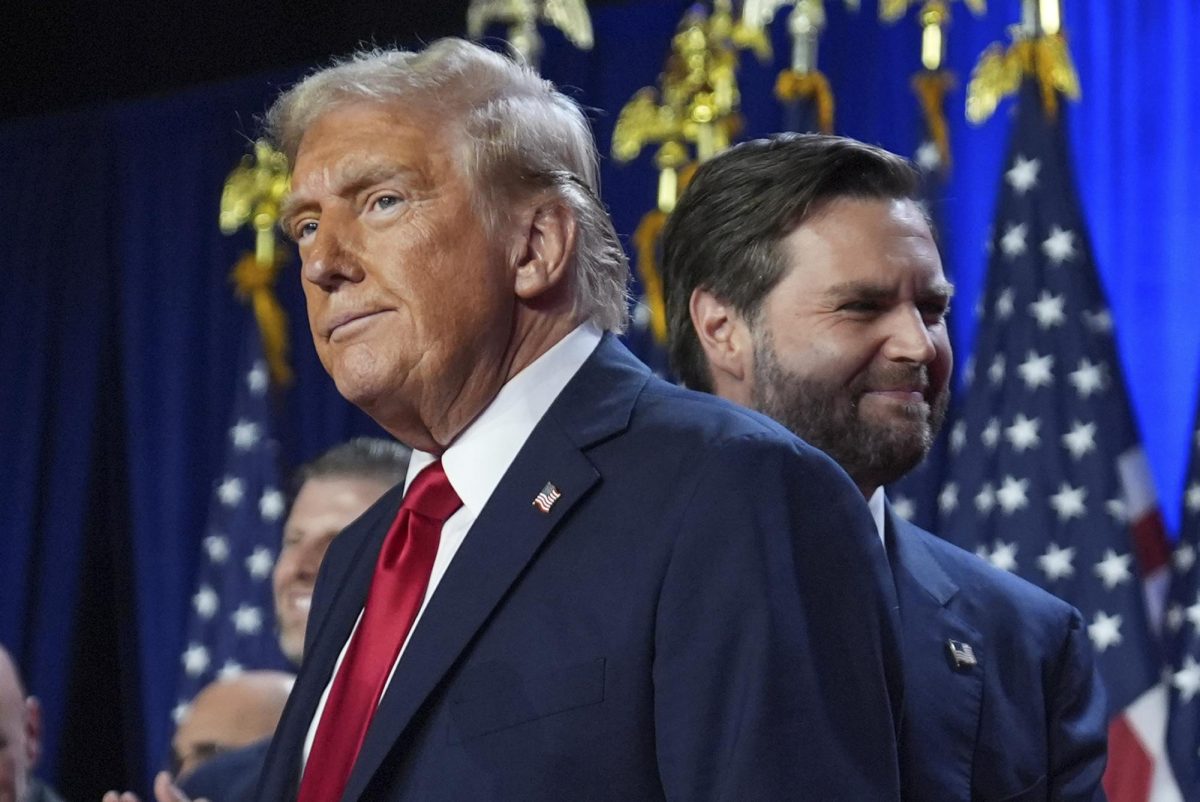Deal raises hopes Congress will pass intelligence reform bill
December 7, 2004
WASHINGTON – Congressional and White House negotiators struck a deal Monday that appeared to… WASHINGTON – Congressional and White House negotiators struck a deal Monday that appeared to clear the way for a sweeping reorganization of U.S. intelligence, sparing President Bush an embarrassing defeat in the closing days of his first term.
The bill, which could be voted on Tuesday by the House of Representatives and the Senate, encompasses the main recommendations of the Sept. 11 commission. It would consolidate control of U.S. intelligence agencies under an overarching Cabinet-level director of intelligence.
Negotiators cleared a major obstacle Monday when Rep. Duncan Hunter, the Republican chairman of the House Armed Services Committee, withdrew his objections to the bill after talks with Vice President Dick Cheney. Hunter said he’s now satisfied that the legislation won’t interfere with the military chain of command and would give soldiers rapid access to spy information.
“We have agreed that we will support this (legislation) because it has now met the standard that we were most interested in, which is protecting the troops in the battlefield,” Hunter said.
Hunter’s opposition reflected unease at the Pentagon at losing direct control over military intelligence. When a majority of House Republicans appeared to share Hunter’s reservations, House Speaker Dennis Hastert, R-Ill., chose not to bring the bill to the House floor before Thanksgiving. This week is the last opportunity to pass the bill before Congress adjourns.
Monday’s developments came after days of negotiations among key senators, House members, Cheney and other White House negotiators. After Thanksgiving, Bush stepped up his call to pass the bill, but he didn’t engage in the kind of intense lobbying that he’s used for his highest legislative priorities, raising questions about how badly he wanted the legislation.
Bush weighed in again Monday evening, sending negotiators a letter supporting the latest version.
“We are very close to a significant achievement that will better protect our country for generations to come, and now is the time to finish the job for the good of our national security,” Bush’s letter said.
Still, the bill’s defeat would be a setback to Bush because it would have come at the hands of his fellow Republicans. Democrats in both houses of Congress favor the overhaul.
House Majority Leader Tom DeLay, R-Texas, said he expected the House to vote Tuesday.
Despite Hunter’s support, the bill still faced opposition from another powerful House Republican, Rep. James Sensenbrenner of Wisconsin, the chairman of the House Judiciary Committee.
Sensenbrenner wants tougher immigration provisions in the bill and has insisted that state drivers’ license standards be made uniform and that foreigners illegally in the United States not be allowed to obtain them.
“Border security and immigration reform are vital components of our homeland security efforts, so why are they not included in this legislation? The time to address these issues is now, not next month, not next year,” Sensenbrenner said in a prepared statement. “Terrorists have exploited vulnerabilities in our asylum system and in the issuance of drivers’ licenses.”
Rep. Deborah Pryce of Ohio, another member of the House GOP leadership, said Republicans would attempt to deal with Sensenbrenner’s concerns, possibly in other legislation next year.
“We’re still working with Mr. Sensenbrenner,” she said. “I think there are different ways to accommodate (him). They are exploring different avenues.”
In addition, three Republican senators – Orrin Hatch of Utah, Saxby Chambliss of Georgia and Charles Grassley of Iowa – voiced new reservations Monday over language that would grant the right of appeal to foreigners whose visas are revoked.
Despite such hitches, the atmosphere at the White House and on Capitol Hill Monday was one of optimism that the bill would pass.
“We hope that this support will provide the final momentum necessary to take intelligence reform across the finish line,” said a joint statement from Sens. Susan Collins, R-Maine, and Joseph Lieberman, D-Conn., the two key Senate negotiators on the bill.
Hunter said he initially objected to the bill because it contained ambiguities about how combat commanders would get access to battlefield intelligence. In the end, the bill gives the president authority to establish regulations that “respect and not abrogate” existing law establishing a chain of command that goes directly from the battlefield through the secretary of defense to the president.
Families of victims of the Sept. 11, 2001, terrorist attacks also lobbied members. Some supported the bill and delivered a petition to Hastert on Monday calling for its passage. Others have sided with Sensenbrenner in demanding tougher immigration restrictions.
—
(c) 2004, Knight Ridder/Tribune Information Services.
—–
ARCHIVE PHOTOS on KRT Direct (from KRT Photo Service, 202-383-6099): Duncan Hunter
PHOTOS (from KRT Photo Service, 202-383-6099): INTELLIGENCE


